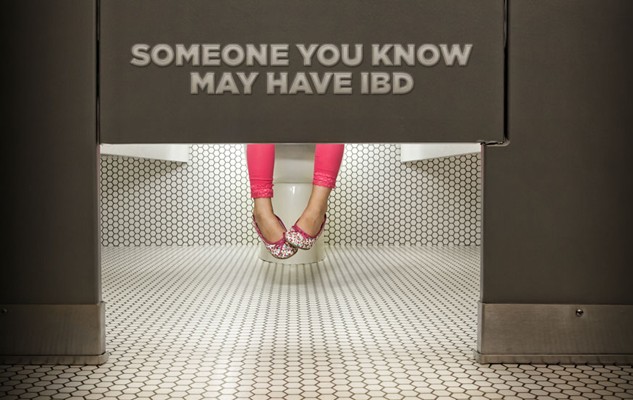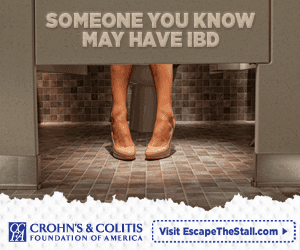
Chances are, you know one of the nearly 1 in 200 Americans who suffer from the debilitating pain and constant disruptions that come with Crohn’s disease and ulcerative colitis. The physical and emotional toll it takes can be devastating. Inflammatory bowel diseases (IBD) cause inflammation in the digestive and intestinal tract, and it can affect anyone – men, women and children. The Crohn’s & Colitis Foundation of America was created to help those with IBD cope and to find a cure.
IBD: The basics
Crohn’s disease and ulcerative colitis are the two most common types of IBD. In ulcerative colitis, only the colon is affected; of the multiple layers of the intestinal wall, only the innermost lining of the colon, the mucosa, becomes inflamed in ulcerative colitis patients. Ulcerative colitis also spreads proximally, meaning it starts from the rectum and can spread continuously to the rest of the large intestine (colon).
Crohn’s disease, on the other hand, may affect any part of the gastrointestinal (GI) tract, from the lips to the anus. Unlike ulcerative colitis, Crohn’s can skip large segments of bowel before reappearing in others. The areas most often affected, however, are the lower part of the small intestine (ileum) and the large intestine (colon). Also, in Crohn’s patients, the inflammation doesn’t stop at the mucosa (tissue lining) and may burrow through the thickness of the bowel wall. Both are incurable, chronic conditions.
Diet and nutrition
While most children with IBD require relatively little or no change in diet, there may be times when modifying the diet can be helpful, particularly when their disease is active. A few different diets and supplements may be recommended during different times by your child’s physician.
Two things you should remain vigilant about are your child’s weight and growth rate. Since weight loss is a symptom of a flare-up, any loss in weight should be reported to your child’s physician. If you child’s growth seems to slow considerably (wears the same size clothing for more than a year, seems smaller than other children of the same age, etc.), bring this to the attention of the child’s doctor.
School
Adults who tend to your child at school should be told about your child’s illness for several reasons, including:
- IBD may lead to more frequent absences or hospitalizations; make-up work and other educational needs may need to be addressed.
- Children with IBD may have a greater reliance on bathrooms and thus need open bathroom passes or access.
- Certain medications may need to be taken during the school day.
- Requesting a meeting with administrators and teachers to discuss the illness and your child’s needs is a proactive way of dealing with potential future issues caused by IBD.
- While informing the administrators and teachers about your child’s needs is necessary, your child may feel embarrassed about letting others know. Because it may be important to him or her, let your child decide with whom and when to share that information with others.
You may want to help your child incorporate some of the following steps into his or her plans:
- Find out where the restrooms are in restaurants, public parks, theaters, and on public transportation.
- Carry extra underclothing and toilet paper or moist wipes when traveling. When venturing further away or for longer periods of time, speak with your child’s doctor first. Travel plans should include a long-term supply of medication, its generic name in case your child runs out or loses it, and the names of doctors in the area he or she will be visiting.
- Encourage your child to go about his or her daily life as normally as possible, pursuing activities as they did before their diagnosis. There’s no reason for your child to sit out on things that he or she has always enjoyed or has dreamed of doing one day.
- Help your child learn coping strategies from friends and other supportive individuals. The Crohn’s & Colitis Foundation is a great place to start.
- Maintain a positive outlook. That’s the basic—and best—prescription!
People with IBD can’t wait. With your help, we can bring IBD out of the bathroom and help those afflicted get back to being themselves.
For additional information and resources, see the IBD Guide for Parents and the Activity Book for Kids and visit the Crohn’s and Colitis Foundation of America.
=====
Award-winning actress Amy Brenneman (best known for her roles in the television series NYPD Blue, Judging Amy and Private Practice) is a proud supporter of CCFA and has suffered from ulcerative colitis herself. Amy is starring in a new public service announcement, Escape The Stall, which features the feet of everyday people where they spend far too much time: in bathroom stalls.






